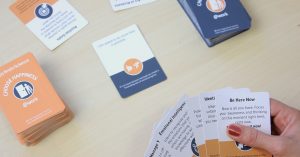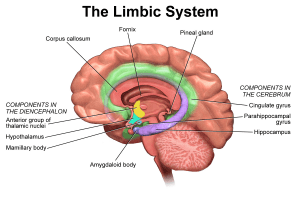I believe you can play your way to a happy, thriving team, which results in boosted performance, creativity, resilience, success, and even pay. Read this article to find out how.
Can you play your way to higher pay?


I believe you can play your way to a happy, thriving team, which results in boosted performance, creativity, resilience, success, and even pay. Read this article to find out how.

Mastery–feeling competent, and feeling your ability improve–is one of the most important human motivators, according to research. Read this article to find out how you can boost your Mastery at work.

Please think of the last time you were pleasantly surprised. What happened in your brain? Science suggests your brain released more dopamine and your brain’s reward centers became more active because you didn’t expect what happened. What does this have to do with ‘gamification’ and leadership?

(Note: This is part 3 in a series on Gamification: Embedding elements of game playing to the workplace to encourage engagement . If you missed the first two posts, read Part 1: Part 1 Autonomy and Part 2 Relatedness) “Arrrrgh…OK just one more time!” If you’ve ever muttered something like this playing a video game–as I read more…

Courage is the ability to do something that frightens us, and science tells us that how we face fears has a substantial effect on our well-being. Stress and fear are often found together, and when we get scared or stressed our amygdala can largely take over our brains, deciding between fight, flight or freeze, which isn’t always best for brain function. In the workplace, facing your fears may not only boost your brain, but can also improve relationships, productivity and happiness. How can you overcome the negative effects of fear while boosting your brain at work?

Let go and forgive. These words are so easy to say, but for some of us–including me–these actions can be hard to do. In fact when someone does something to us that we perceive as inappropriate or unfair, many of us become vengeful. That’s natural, and to be clear, unpleasant emotions such as anger can be read more…

Letting yourself become cynical may be hazardous for your health! Optimism on the other hand, is associated with higher levels of happiness and health. To counteract cynicism, scientists recommend being “actively optimistic”. Read more to learn how.

Science tells us that how we cope with stress has a huge effect on our well-being. For most of us it’s difficult to be stressed and happy at the same time. Our naturalfight, flight, or freeze response is not usually the most helpful reaction at work. What do you typically do under stress? How much read more…

Self-determination Theory suggests that Autonomy, Relatedness, and Mastery are vital human motivators, whether we are talking about working in the office or playing a video game. Every brain in the world is different, but for most of us most of the time, we would rather play games with others than alone. As the title of a just-published study puts it, “Fun is more fun when others are involved”. Science confirms, time and again, that relatedness–connecting to others and feeling something in common–is a key internal motivator.

In the Science of Being Happy and Productive at Work I teach that warm relationships may fuel happiness more than any other single factor science has found. When you invest time and attention in your relationships, they improve, and that improves your happiness. You also improve your coping ability because you have more social support. read more…